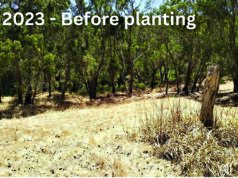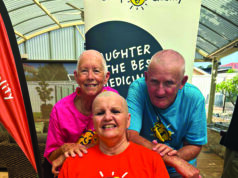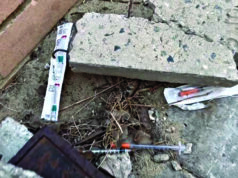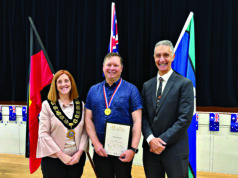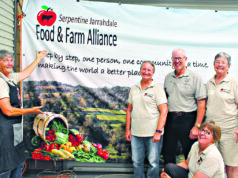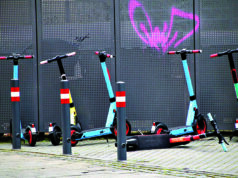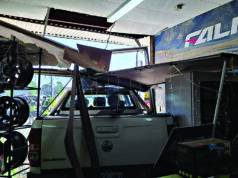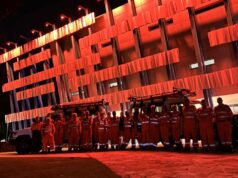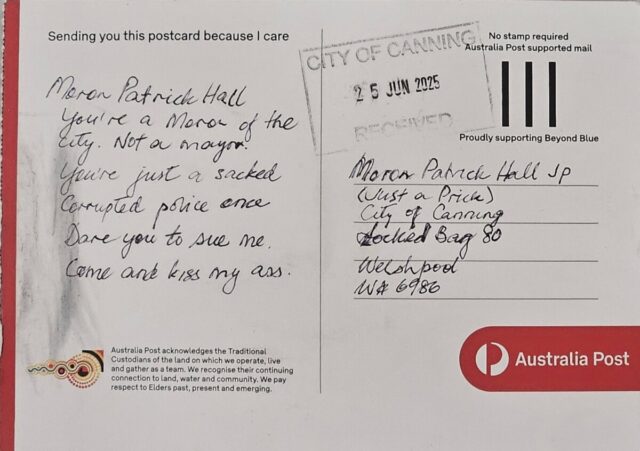
Would you run for council?
It’s a question that gets asked more often as local government elections draw closer.
Some find it as an opportunity to foster change in their community, while for others, it’s a definite no. And that’s not because of long meetings or late-night emails, but because of personal attacks that come with the role.
Elected members across the Cities of Canning and Gosnells say abuse is becoming a part of daily life, and not just from the public. While some say they’ve been spared the worst of it, others describe a culture that can be cruel, both online and behind closed doors.
Mayor of Canning Patrick Hall said public officials shouldn’t have to suffer in silence.
“Abuse shows up in all kinds of ways; emails, phone calls, social media comments, and sometimes even in person. But a handwritten postcard was a first,” he said. “It stood out not just because of what it said, but because someone took the time to write it, address it and post it. That level of effort really gives you pause.”
He decided to share the postcard publicly. “Because this sort of behaviour thrives in silence and often goes unseen. If people don’t know it’s happening, they assume it isn’t,” he said. “I wanted to shine a light on what elected members can be subjected to behind the scenes; not for sympathy, but to show the reality.”
That reality, he said, is pushing people away.
“When abuse turns personal or aggressive, it can be incredibly off-putting. I’ve seen how it affects people, especially women and councillors from diverse backgrounds. We talk about wanting more diversity in local government, but then we make it a hostile place for people to step into.”
City of Gosnells Mayor Terresa Lynes said while most people engage respectfully, there’s a small group who don’t particularly on social media.
“That kind of behaviour just wouldn’t fly in any other setting,” she said.
She believes some potential candidates might be discouraged from running.
“Reading some social media threads can be intimidating,” she said. “Criticism is part of the role, but it should be delivered respectfully. I don’t believe elected members should have to tolerate abuse or poor behaviour from the public.”
The only remedy available to councillors, according to Mayor Lynes, is civil action through defamation proceedings or restraining orders. “A councillor should not have to pursue that costly process and waste court resources to deal with people who believe it is acceptable to abuse or harass them. That said, I’m grateful we don’t face the same level of hostility our State and Federal colleagues often do.”
Deputy Mayor Serena Williamson hasn’t personally experienced harassment, but in her former role as President of the Australian Local Government Women’s Association WA, she heard many stories that stuck with her.
“It understandably causes significant distress and negatively impacts many aspects of their personal lives; their health, family, work and friendships,” she said.
Another Gosnells Councillor, Emma Zhang, also mentioned she hasn’t faced abuse directly but said the culture around local government is shifting.
“With the rise of social media and increasing polarisation in society, the tone of public debate has shifted,” she said. “Constructive criticism is absolutely part of the job, and something we should welcome. But personal attacks and harassment are not acceptable in any workplace, including public service. Normalising abuse doesn’t make our democracy stronger; it makes it less inclusive and less effective.”
Some elected members noted the most difficult part of the role isn’t always public criticism, but what happens behind the scenes. In some cases, councillors say the pressure comes from within, through internal politics, isolation or subtle forms of bullying.
One described feeling targeted for simply sharing their views during debates, saying the real strain came not from online trolls, but from colleagues around the table. They said social media and unofficial channels are sometimes used to paint fellow councillors in a negative light, and that speaking up can come with consequences.
“It’s not easy to call it out,” they said. “Raising a concern can make you a target, and that can leave you feeling isolated. It becomes really hard to keep going when you feel like you’re on your own.”
According to Cr Saifu Islam of the City of Gosnells, the abuse can be worse for people who look different or speak with an accent.

“There’s a line between accountability and abuse,” he said. “It’s often easier for people to lash out behind a screen. That behaviour becomes worse when someone like me looks different, speaks with an accent, or has a unique name.”
Cr Diane Lloyd said she’s still unsure if she’ll run again. “I took this role to help my community, not to be a target,” she said. “If we want genuine, diverse representation, we need to value the people willing to set up.”
Also airing their view on the issue, Cr Brooke O’Donnell said the attacks don’t always stay online. “I’ve had people bring my family and school community into it. My family and connections are a no-go zone,” she said.
“It shouldn’t have to come to financially threatening legal action in these instances. It’s a poor form for people who forget we’re human.”
According to Cr Peter Abetz, “Very occasionally, people have vented their spleen about issues on Facebook (putting comments on my posts), but I have never taken that personally. I have only 2x received an abuse phone call and I did hang up on one person because they were using abusive language and refused to say who they were.”
WALGA President Karen Chappel said the issue is widespread across councils in WA. “Everyone, irrespective of their background or views, should feel safe undertaking their duties as an elected member.”
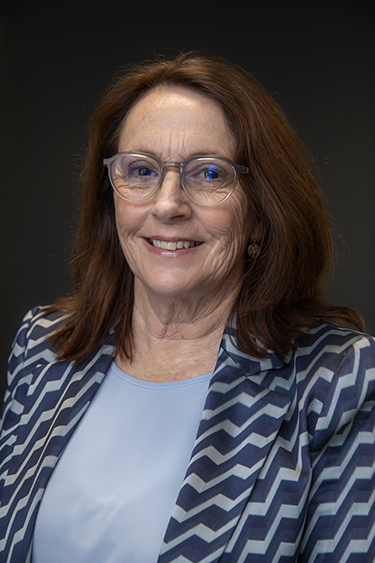
She added, “Any form of abusive vitriol or conduct should not be tolerated in our society.”
Members of the public had mixed views. Some said councillors are too often blamed for things outside their control. Others said the pay doesn’t come close to matching the pressure, especially when the work spills into evenings and weekends.
Local community member Anthony Steven said he often has close contact with local councillors in his role as President of Armadale Rotary Club.
“I think the biggest challenge is that people don’t understand what local government is responsible for,” said Anthony Steven. “Often issues that sit with private property owners or state or federal government gets heaped on local government as the issues exist within their locality. The hours are unsociable and the expectations are huge.”
City of Gosnells’ David Goode said it takes about 10 to 15 hours a week to do the role properly.
“That can be extremely difficult for many professionals to take up,” he said.
“Being a councillor has always been a highlight of my life. But we need to ask, how many people are willing to do this now?”
Jane Lavender said the level of public commentary aimed at councillors online was shocking. “The stuff people are prepared to write on Facebook about others, and in this case Councillors, is diabolical,” she said. “I doubt they’re paid sufficiently to tolerate the abuse, the out-of-hours requirements, or the passion and integrity they are required to sustain,” she said.
As election season approaches, communities are being encouraged to nominate; but some of the very people best suited for council might be the ones too tired to try again.
Because it’s not just about policies, meetings or votes. It’s about the weight that comes with representing a community that doesn’t always show the same respect in return.
And that leaves one lingering question; is it worth it?



